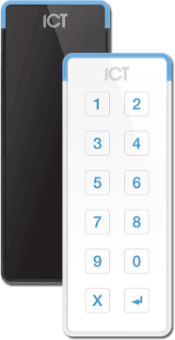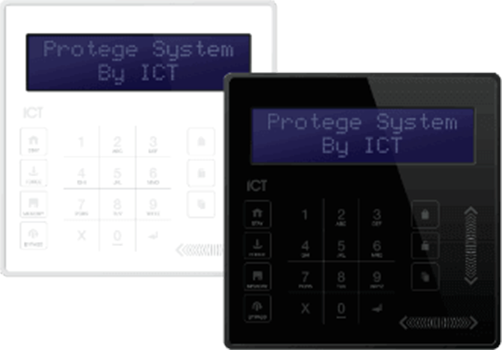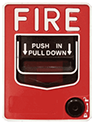Video MGMT System
 Access Control
Access Control
Voice & Data Wiring
 Burglar Alarm
Burglar Alarm
 Fire Alarm
Fire Alarm
Video MGMT System
Voice & Data Wiring
THOUGHT CENTER > Blog > Security Cameras
December 8, 2023
Too busy to read? Here’s a summary:
The residential use of surveillance cameras has skyrocketed in recent years and is expected to continue growing at a staggering pace. In fact, according to a report from SafeHome, the global home security market is projected to grow from $40.7 billion in 2020 to a staggering $84.4 billion by 2027.
Factors like rising crime rates, technological advancements, and increased awareness of the effectiveness of modern home security systems drive this growth.
That said, the use of surveillance cameras requires compliance with applicable federal and local privacy laws and regulations.
Suppose you’re in Connecticut and considering video surveillance for your property. Do not fret. Today’s post at the Mammoth Security Thought Center is all about laws and regulations as they apply to residential and other nonbusiness surveillance applications in Connecticut.
If you’re interested in security cameras for business security, click on this link to read about workplace surveillance laws in Connecticut.
Surveillance regulations for residential or nonbusiness security are generally less strict than those governing employers, but it’s still necessary to understand and follow applicable laws to avoid costly legal problems.
Connecticut, like many other states, has set forth regulations to balance the need for security with the right to privacy.
Simply put, it's generally legal to record video footage (without audio) so long as it doesn't invade a person’s “reasonable expectation of privacy.”
The installation of doorbell cameras is not considered a privacy violation because there isn’t a reasonable expectation of privacy for people as they approach front doors and ring bells.
On the other hand, there is a reasonable expectation of privacy when people use bathrooms and other spaces where they’re likely to disrobe.
At the federal level and in Connecticut law, there's no specific rule that prohibits homeowners from installing surveillance cameras around their property.
However, there are applicable regulations in place to prevent security cameras from infringing on the privacy rights of neighbors.
For example, backyard cameras should never capture images of the inside of your neighbor’s house or any other part of their property where there may be a reasonable expectation of privacy.
Connecticut has a specific law that addresses voyeurism, which is found under Section 53a-189a of the Connecticut General Statutes.
This law makes it a crime for someone to intentionally photograph or record another person without their knowledge and consent when they are in a place where they have a reasonable expectation of privacy.
Such places include changing or dressing rooms, bedrooms, and bathrooms.
The law further specifies that it is illegal to secretly record with the intent to arouse or satisfy sexual desires.
The Connecticut Constitution, in Article First, Section 7, guarantees that "The people shall be secure in their persons, houses, papers, and possessions from unreasonable searches or seizures; and no warrant to search any place, or to seize any person or things, shall issue without describing them as nearly as may be, nor without probable cause supported by oath or affirmation."
While this primarily addresses government actions, it underscores the importance of privacy rights in the state constitution.
Invasion of privacy is a common law tort in Connecticut. This means that victims of invasion of privacy have the legal right to seek damages for emotional distress, harm to their reputation, and more.
Connecticut’s invasion of privacy torts can be categorized into four parts:
Placing a security camera to record a person where they have a reasonable expectation of privacy falls under the first category, "intrusion upon the plaintiff's seclusion or solitude, or into his private affairs."
The rest of the categories specify ways in which surveillance can cause damage, although the first category is itself adequate to justify legal proceedings.
While our focus is on Connecticut surveillance and privacy laws, U.S. federal law also applies in the state.
For example, the Video Voyeurism Prevention Act of 2004 prohibits capturing images of an individual’s private areas without their consent in contexts where there is a reasonable expectation of privacy.
Disclaimer: This blog post is for informational purposes only and should not be taken as legal advice. When in doubt regarding privacy rights and surveillance, consult with a legal professional who is familiar with your jurisdiction.
Here are the best practices for legal compliance when installing security cameras for non-commercial surveillance:
As mentioned earlier, avoid placing cameras in areas where individuals have a reasonable expectation of privacy. This includes bathrooms, bedrooms, changing areas, and the interiors of neighboring houses.
While not explicitly required for residential surveillance, it's a good practice to notify visitors, neighbors, or anyone else who may step onto your property that they are being recorded. This can be done through posted notifications, such as “Smile, you’re on CCTV!”.
Be cautious about how you store and share footage.
If you store footage from your surveillance cameras, ensure that the data is kept private and secure.
It's also a good idea to regularly delete old recordings that aren't needed.
Sharing surveillance footage without the consent of those captured in the video, especially if used in a manner that could defame, embarrass, or otherwise harm them, could lead to legal repercussions.
Privacy masking is a feature commonly found in many IP (Internet Protocol) cameras designed to protect personal privacy by concealing specific parts of an image from view with masking.
Masking is a camera feature that covers or blurs sensitive areas within a camera's field of view in order to respect privacy rights.
Protecting Personal Privacy: If a camera overlooks a residential area, masking can be leveraged to respect privacy rights. For example, windows can be masked to ensure the privacy of neighbors when they are inside their homes.
Protecting Sensitive Information: In scenarios where cameras might capture sensitive information, such as car number plates and personal identifying details, privacy masking can be used to prevent such details from being recorded.
Legal Compliance: In areas where there are strict privacy laws, privacy masking can help camera operators comply with regulations by ensuring that they do not inadvertently capture footage that could infringe on someone's privacy rights.
If you're planning to record audio along with video in the U.S., you'll need to obtain consent no matter what state you live in. The federal wiretap act (18 U.S.C. § 2511) requires at least one participating party to consent to audio recording. This means surveillance cameras with audio recording capabilities should be disabled unless a party to the recording is always around to provide the necessary one-party consent.
Rules for audio recording are more strict in Connecticut than they are federally. Connecticut is an all-party consent state, meaning all parties involved in an audio-recorded conversation must consent to be recorded.
Given this stringent requirement, it's often recommended that homeowners disable audio recording features or ensure they obtain consent from all parties being recorded.
Whether you're considering the installation of doorbell cameras, contemplating the best spots for backyard surveillance, or weighing the pros and cons of audio recording, Mammoth Security is Connecticut’s trusted partner for effective security solutions.
We're not just about selling you a security system; we're about crafting a solution that respects privacy while providing the security you need.
Reach out to us today by clicking on the contact and filling out the form that appears for a free site survey and security assessment from an expert on our team.
Let's start a conversation that fortifies your safety without breaking the law.
NOT COMPLETELY SURE?
860-748-4292In Connecticut, security camera privacy laws differ for businesses and residences. For residential use, it's generally legal to record as long as it doesn't invade a person's reasonable expectation of privacy. Businesses, however, must adhere to stricter regulations.
The best practices for installing residential security cameras in Connecticut include avoiding areas where there is a reasonable expectation of privacy, such as bathrooms and bedrooms, informing visitors about the presence of cameras, and ensuring secure data storage and sharing of the footage.
In Connecticut, you cannot record audio with security cameras without obtaining consent from all parties involved in the conversation, as it is an all-party consent state. This means that audio recording features should be disabled unless consent from all parties is secured.
Connecticut's voyeurism law affects home surveillance by making it illegal to intentionally photograph or record someone in areas where they have a reasonable expectation of privacy without their knowledge and consent.
Privacy masking in home surveillance systems is a feature that conceals specific parts of an image from view in order to protect personal privacy.